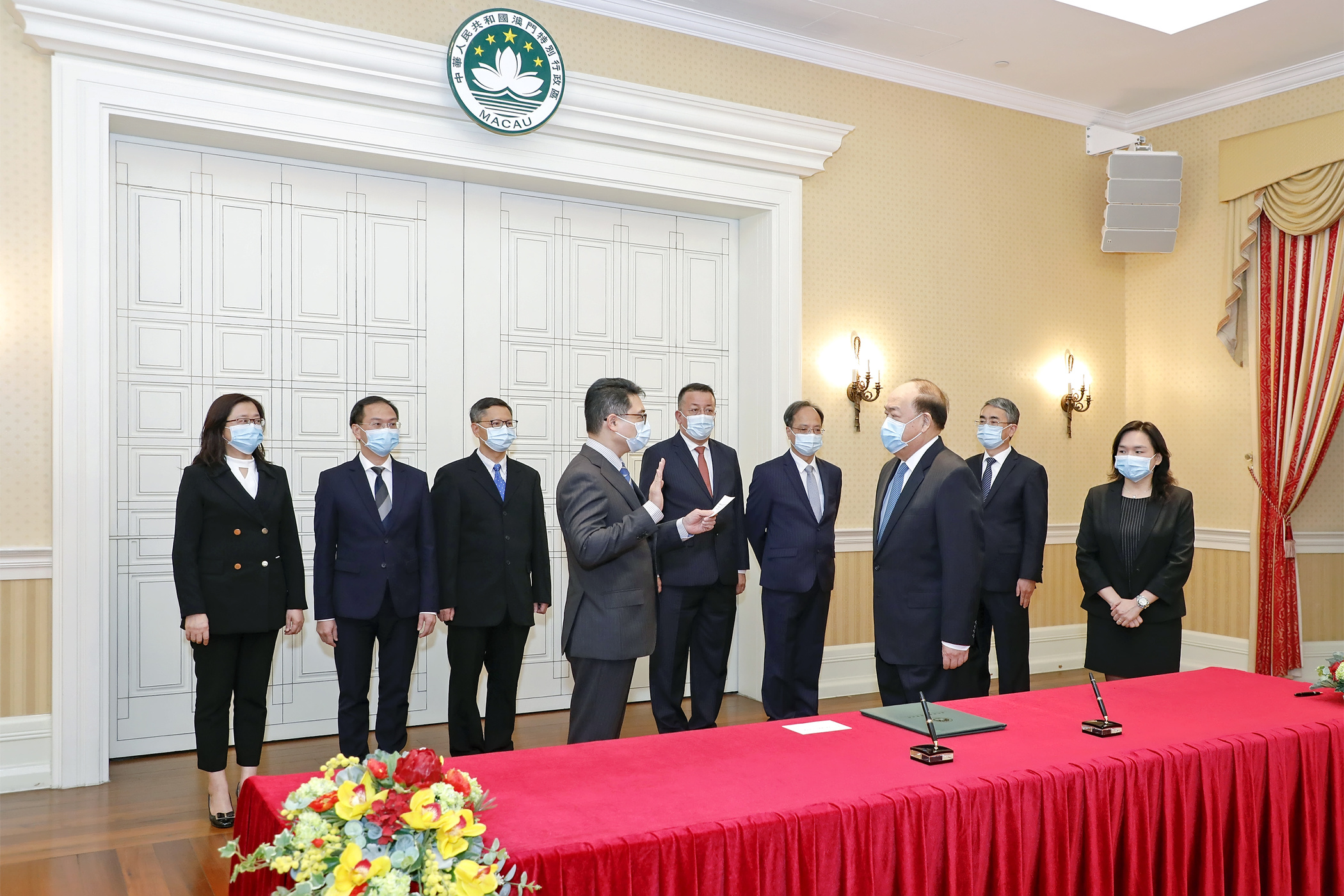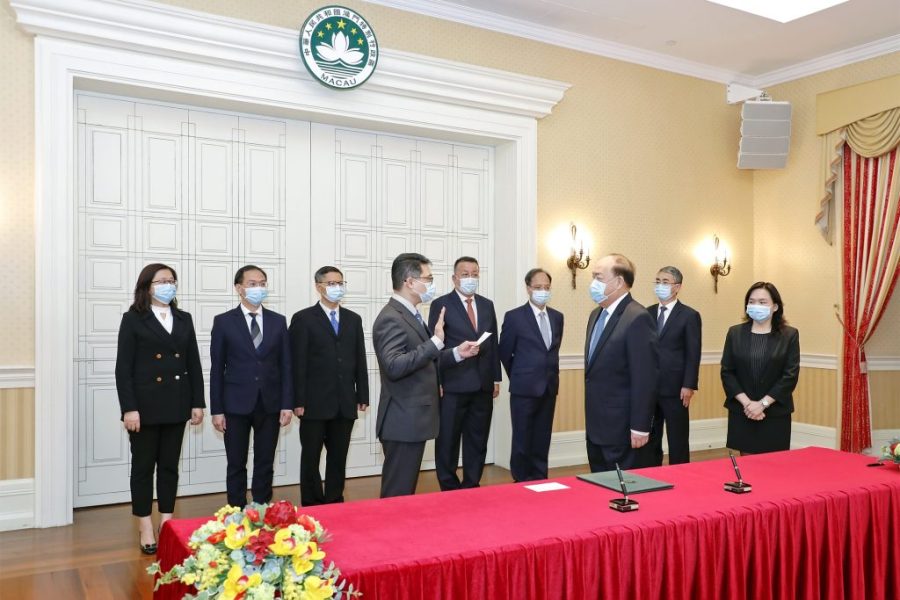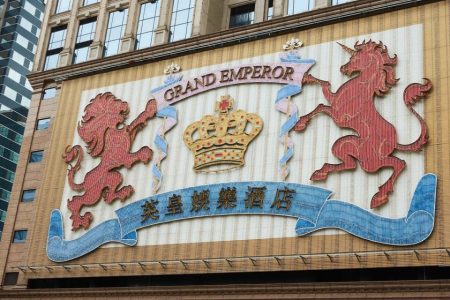Tong Hio Fong, who once again heads the Legislative Assembly Electoral Affairs Commission which will oversee the legislature’s direct and indirect elections next year, said on Tuesday that over 320,000 permanent residents will be eligible to vote in the 2021 direct election, an increase from the approximately 307,000 voters in the 2017 elections.
Permanent residents aged at least 18 are eligible to cast their ballot in the elections.
He also said that Covid-19 was the “biggest challenge” to next year’s elections.
Tong, a judge at the Court of Second Instance (TSI), also said that due to the increased electoral roll the commission would possibly increase the number of polling stations for next year’s direct election.
The Legislative Assembly’s (AL) direct and indirect elections take place every four years.
The Legislative Assembly Electoral Affairs Commission comprises a president and at least five other members who are appointed by the chief executive. According to an executive order published in the Official Gazette (BO) on Monday, Chief Executive Ho Iat Seng has appointed Tong as the commission’s president and five other members of the commission, namely Lai U Hou, a prosecutor of the Public Prosecution Office (MP), Municipal Affairs Bureau (IAM) President José Maria da Fonseca Tavares, Public Administration and Civil Service Bureau (SAFP) Director Kou Peng Kuan, Financial Services Bureau (DSF) Director Iong Kong Leong, and Government Information Bureau (GCS) Director Inês Chan Lou. Ho signed the executive order on December 9.
The legislature’s direct and indirect elections are customarily held in September.
The six members of the commission took their oaths of office during a ceremony conducted by Ho at Government Headquarters on Tuesday when the commission started operating.
Accompanied by his fellow members, Tong spoke to reporters after the oath-taking ceremony. Tong, who also headed the Legislative Assembly Electoral Affairs Commission for the legislature’s direct and indirect elections in 2017, said that he had thanked Ho for reappointing him as the commission’s president. Tong said that his commission would first review the shortcomings faced by the commission’s organisation of the previous 2017 elections and then come up with solutions to improve them, particularly by studying possible improvements to the arrangements on polling day.
Tong said that his commission would also study possible improvements to the arrangements at polling stations. Tong said that, for instance, long queues occurred at the polling stations of the Seac Pai Van public housing estate in Coloane and on the Macao Polytechnic Institute (IPM) campus in Zape during the 2017 elections, resulting in voters having to wait to vote for a relatively long time, adding that his commission would study how to improve this kind of issue.
Tong admitted that the Covid-19 pandemic would be the “biggest” challenge to next year’s direct and indirect elections. Tong said that his commission would later discuss the matter with the Health Bureau (SSM) with the aim of ensuring the sound organisation of the elections next year, such as possible adjustments to the arrangements of the election campaign period and Covid-19 prevention measures on polling day.
Tong said that his commission could only decide whether to increase the number of polling stations for next year’s direct election after studying the matter in detail.
Tong also reminded eligible permanent residents who are still not included in the city’s electoral roll that they must register tomorrow at the latest if they want to cast their ballot in next year’s direct election.
Tong said that his commission would come up with contingency plans in response to the occurrence of a possible Covid-19 epidemic in Macao around polling day. Tong noted that the Legislative Assembly Election Law allows the direct and indirect elections to be postponed under special circumstances.
The 33-member legislature comprises 14 directly-elected seats, 12 indirectly-elected seats and seven government-appointed seats. While 14 lawmakers are elected by universal suffrage, 12 are elected by association representatives. The remainder are appointed by the chief executive shortly after the elections.
Except Inês Chan, who succeeded Victor Chan Chi Ping in July this year, Tong and the other four members of the commission overseeing next year’s elections were also members of the commission for the 2017 elections – i.e. they have been reappointed. Victor Chan, who has been succeeded by Inês Chan as director of the Macao Government Information Bureau (GCS), was a member of the commission for the 2017 elections. He now works as an advisor to Secretary for Economy and Finance Lei Wai Nong and is a member of the Administration Council of government-owned Macau Investment and Development Limited.
(The Macau Post Daily/Macao News)
Photo by Government Information Bureau (GCS)






